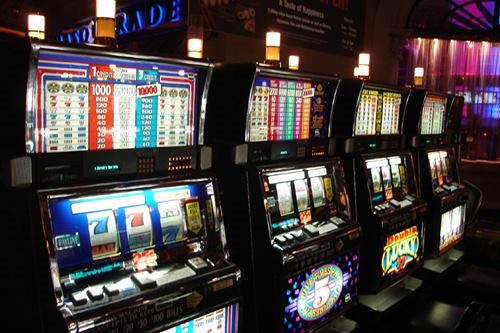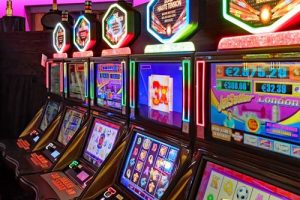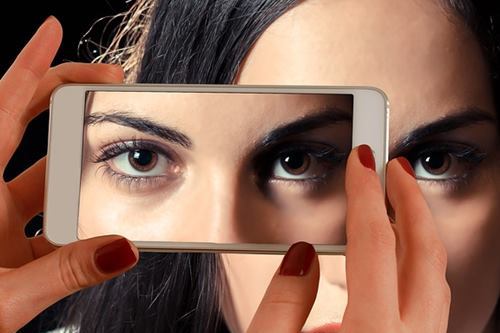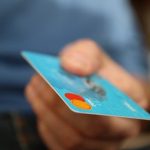Compulsive Gambling Help NZ
End the Addiction
How to stop your gambling addiction
I was gambling away my life and family.

Compulsive Gambling
There is nothing wrong with gambling, as long as you treat it as entertainment. If you go to the racecourse and win some bets and lose some, then at the end of the day you have had a day out. The cost of your day out is how much you have lost, or just occasionally, won. It is up to you whether you think a day's worth of entertainment is worth the price.
Gambling itself is not bad. Almost everyone buys a Lotto ticket now and then. You know you are virtually certain to lose, but the thrill of a jackpot is worth the investment.
So, you can think of gambling as entertainment. Or you can think of it like alcohol. Most people can have a social drink, even drink every day, and have no problems. Other people, however, become dependent on it. The same applies to gambling.
The difference is, alcohol has a physical effect on your body. Gambling addiction is entirely in your mind. And that is where the solution must be found.
You don't become a compulsive gambler the first time you win a bet. You become a compulsive gambler when you realise that gambling lets you escape from your anxieties. The addiction comes from ignoring some emotional issue.
Anything that makes you feel uneasy, that causes you stress, can remind you of that basic feeling. When you get it, you want to get away from it, even for just a moment. And for you, gambling does that. Gambling becomes your total focus. It drives out everything else. And makes you feel better.
For other people, alcohol does it. Or drugs, or sex, or shopping, or eating or burying yourself in work. All of these are ways to avoid dealing with their underlying feelings. But you need to realize, that if you weren't gambling, you would be doing something else to fill your mind.
Addictive Personality
Some people say they have an addictive personality. They don't. What they do have is a constant need to do something that will fill that empty void, the pain, the longing in their mind. Whenever it gets too great, the easy way out to do some thing that completely fills your mind. Sometimes, even that doesn't work, and you flit from one addiction to another. Gambling is a coping mechanism so some people can feel something, other than anxiety and guilt.
Gambling is unique in one way. It is only addiction where the addict believes that doing more of it will solve their addiction. They are never satisfied with a few winnings. It's either 'win big, or go broke'. The next spin will win it all back and solve everything. But it doesn't.

How to end your compulsive gambling addiction
You can only begin to deal with your gambling addiction when you can understand how it connects with your emotional issues. When you understand why you do it, then you can learn how to stop it.
Your emotional issues are most likely something you are carrying from childhood. When you feel grounded, and in a good place, you can bet sensibly and often make some money. But when you are in a bad place, you gamble compulsively, and sabotage yourself. You know what is going to happen, but do it anyway. It's like touching a hot stove, knowing it going to burn you, but you do it anyway.
It is as if you believe you don't deserve good things, and instead of focusing on what you need, you destroy what you have. Even if you start to win, you put it all back on until it is gone.
The reason for gambling addictions
Some gamblers do it to quiet their thoughts. Others gamble to punish themselves. You start gambling, even though you know you will lose. It is the feeling of hurt, unfairness, disappointment and self-hating that the compulsive gambler seeks.
This re-creates the cycle of punishment, anger, shame and hurt that the gambler went through as a child. Any time life dumps bad things, the gambler is reminded of those childhood emotions, and is compelled to relive them again.
Often the gambler will start gambling again in the hope of winning big enough to wipe out the shame of losing so much. This is often how company frauds start.
Gambling with your emotions
People get into bad places for all sorts of reasons. One person I know started gambling after losing a friend to cancer. But losing the friend was only the trigger. His tendency to self sabotage after a set back was always there.
Anytime you find yourself going to gamble, even though part of you is telling you that you shouldn't, this is a clear sign that you are being driven by an emotional problem. The logical part of your brain knows you will end up losing. The emotional part of your brain doesn't care, and just wants to feel some excitement.
If you find yourself getting defensive about your gambling, then you are fighting your emotions.
So the place to start, is with your emotions.
Slot Machine gambling Case
This client wanted help with a gambling addiction. She told me that she binges on the slot machines, and has done for years.
She described a pattern of behaviour in which, about once a week, she just could not resist going to the slot machines (called pokey machines in this country) and spending hours on it. Once she has started she feels unable to stop. When she runs out of money she would just go and get some more. She has spent up to $2000 in one night.
She has no interest in horseracing, or any other kind of gambling. At other times she has actually no interest in the pokies, and feels no pull towards them. It's just that something happens, and then she has to go and play pokies.
Is gambling addiction the wrong diagnosis?
This sounded exactly to me like a black and white thinking. I got her to look at the symptoms of dysthymia, laid out in a grid that I use. She looked at it and said "I am all over this. Just about everything listed here applies to me. "

I explained that she was self-medicating by going to the pokies. Every time she felt overwhelmed by all the other things in her life she went to the pokies. The noise, the lights, the music, the focus of attention – all of this took her away from her problems. It made her forget all about her issues. She agreed that that was exactly what she was doing.
We spent the rest of the session talking about dysthymia. She seemed very relieved to finally find an answer. She said that she had been to another hypnotherapist. After a few sessions she sensed that that other therapist was getting annoyed with her because she could not find anything in childhood which explained her gambling addiction.
End your Gambling Addiction
I believe that for many people, what is called "gambling addiction", is in fact part of an ongoing depressive illness.
I taught self hypnosis to her so that she can learn to cope better with her anxieties. Then we did some some thinking exercises, so that she can learn to deal with her negative thoughts. In the last session, I showed her how to deal with her childhood issues. The basic issue is that her mother also had black and white thinking, and took it out on the children. Fixing that with fix the source of her anxiety, and her gambling addiction.
Ending compulsive gambling
Gambling is reaching epidemic proportions in Australia. There are pokey machines (slot machines) everywhere. It is becoming a major social problem. There is a constant need for ending compulsive gambling.
I saw a client today who feels that her gambling is out of control. Even on the way to my office she passed the local pub and thought to herself "I wonder if it's open", so that she could go in and play the pokey machine. Last week she put the entire household shopping budget, over $400, into a slot machine.
When we started talking about it, she told me that the noise, the lights, the high she gets just puts her into a zone. As long as she has money, she just keeps putting it in. She said that she feels she is spiraling out of control.
Source of the compulsive gambling
In my experience gambling is always an aspect of anxiety. I started asking her what it was that she was trying to avoid by gambling, and she told me that she was having troubles with her job, her marriage, and felt that she was failing her daughter.
I asked her if she had always been anxious. She told me that since she was 11 she has been pulling her eyelashes, and goes through periods of hair pulling. And to my surprise, she took off her hat, to show that she was near bald.
She was clearly unhappy. So I asked her about her childhood. She told me that she grew up on a farm. She said that she had a very happy childhood. When someone tells me that a happy childhood, my heart fails, because usually they are deluding themselves.
They would not be sitting in my chair if they had had a happy childhood.
I started asking about growing up, and it turned out that for her mother she was never good enough. Her mother was a perfectionist, her father was always working. Her sister was always academically bright. So she never felt good enough.
When she was 15 years old her father lost his job, and that was when the anxiety started.
Ending gambling by finding the source
To me this suggested a family history. Her mother had anxiety, and her of anxiety father had some sort of need to be always busy. I asked her she had ever been diagnosed with depression, and she said she'd been on pills for 20 years.
Digging deeper revealed a history of failed relationships, single mom, unsuitable relationships with married men. All of these suggested to me that her basic problem was insecurity.
I think that her gambling puts her into the zone where she can forget all her worries. Her unconscious mind is driving her to do that because it doesn't have any other way of dealing with her overwhelming feeling of not being good enough.
Her gambling binge had only been going on for six months. Six months ago, she and her husband went to a bar, for no particular reason put some money into a pokey machine, and won $900.
Six months ago, she and her husband went to a bar, for no particular reason put some money into a pokey machine, and won $900.
This was a godsend and got them out of a financial problem. In her unconscious mind, she associated ending her problems with winning on the pokies. She started using them occasionally, and then continuously.
The solution to compulsive gambling
The solution was to deal with the anxiety. I asked her to relax, and breathe deeply. Then I got her to focus on her own feelings of insecurity, anxiety, and inadequacy. It was immediately obvious that she had found the feeling so I began to develop it as a metaphor.
I helped her to develop it into an object. It was a grey object like a brain. I encouraged her to think about how it might change, and gave her suggestions as to how to do that.
She transformed into a very small green thing that she felt good about. I got her to take that somewhere outside where it could grow and flourish. Then I got her to fill the space where the brain thing had been with something nice. She chose her daughters smile to fill it with.
I use that feeling to fill the whole of her mind with a feeling of contentment. Then I use that new feeling to go fishing for the anxiety deep inside. I suggested that her mind had found the source of the anxiety, lifted it out of where it had been hiding, and destroyed it.
I then brought her back to the present.
She said to me that she felt as though she had been asleep for hours. She said she felt such a relief. And she was now ready to go back and get her life back on track.
Gambling 3 Racing to destruction
Paul spends hours playing with his kids. He buys his wife flowers at the weekend and never forgets her birthday. He is a qualified electrician. Clients love his tidiness and the phone is always ringing with offers of work. He earns more than anyone else in his street. But he can't pay the power bills.
Somehow money always slips through his fingers. He could be doing more, making more, but something always holds him back. Paul is scared of failing.
He got asked to join a friend to start house renovations. He put off answering until the friend started without him. That friend now invites him out on his huge boat. He could start his own company. But it might fail.
He loves challenging his friends, trying to outdo them. He loves competing, and that is where the problem is. His sport is horse racing. Paul gambles.
He loves the excitement of racing, the thrill of a win. He has no interest in cards or slot machines. Horse racing is his thing. He has a library of racing-science books. Other punters seek his advice. He studies form, analyzing horses, trainers, jockeys and track conditions.
He has come home with pockets stuffed with cash. But of course nobody wins at horse racing. You always lose in the end. Paul could have bought his wife two new houses.
When he loses, he feels gutted. Weak, stupid, ashamed. He runs off to work and doesn't come home. He feels a gut wrenching pain. It is so real he can taste the failure. Every time it happens, he swears he will stop. "This time I mean it." He works day and night to earn the money to make it all right again.
But soon his compulsive gambling has him back scanning the racing pages. Looking for the next winner. Secret bank accounts. Credit card demands. And of course, she finds out. And that brings back that feeling of failure.
He was the youngest in a big noisy family. He had to fight his brothers for everything. But he always lost. He felt weak, unnoticed - a failure. It's like fear of failing is written into his DNA.
The only thing that cancels that fear is the excitement of gambling. That gives him a bit of a break. He lives for the excitement of putting big money on a race. It's like an addiction.
But luck runs out. When he loses all the money it is like drowning in 'failure' and he feels sick again. He is on his knees begging his wife. He means it. He stops for a day or a week, but the need comes back. Soon he is betting again.
He looks forward to it all day. He gets his racing pages, studies what race meetings are on, what his winning strategy will be. It takes over his life. The thrill of gambling, the risk, nothing else takes away that feeling. That's why he gambles.
Paul knows he shouldn't do it. He knows how much money he has wasted. He knows his wife will leave him. He will lose his children. But he can't stop. Gambling takes away that never ending empty feeling "I am a failure".
The instant gambling cure
Paul's wife gave him an ultimatum: the gambling or me.
All gamblers are trying to get away from an unbearable feeling. The roots lie in childhood. But there is no point in going back to the past. I can't change the past. I work with how it affects you now.
I had to remove that terrifying feeling of failure. I got him to imagine he was coming home after losing his wages on a race. I told him to let that feeling come out, as it always does. I got him to focus on that feeling. He recognized something in his chest. A crushing pressure. Huge and relentless.
Then I asked him to imagine it changing. Then letting it change some more, until it had changed so much it was no longer the same thing. It turned into something like an old burst balloon. As soon as he changed his image to something weak and harmless, the feeling disappeared. Instantly.
I had to make sure the feeling was totally gone. I got him to imagine the old balloon recycled into something rubber. It became a toy car. I gave him a visualisation of enjoying time with his kids playing with the toy car. In his mind, that terrible feeling had turned into him enjoying life with his family again.
Gambling is not an addiction, or a character flaw. It isn't an illness. Gambling is about feelings. Remove the dread, and the compulsion stops. Your gambling is no different. You can beat it.







